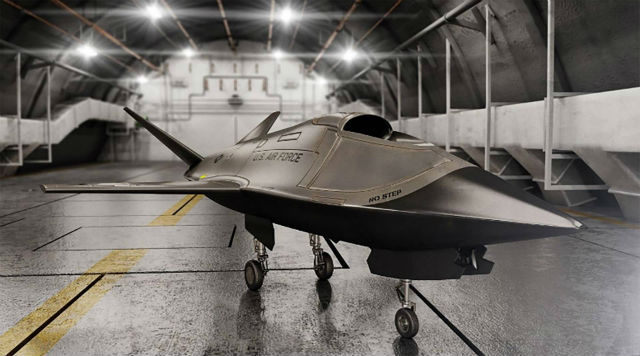What happened
Shares of Kratos Defense & Security Solutions (KTOS -0.39%) were up 10% at 2:15 p.m. EDT Thursday, after the drone specialist reported first-quarter earnings that came in slightly ahead of expectations, and provided an optimistic outlook for the remainder of the year.
So what
Kratos is a onetime wireless-infrastructure vendor that pivoted over the last decade to become a government contractor. After markets closed Wednesday, it announced first-quarter earnings of $0.03 per share on revenue of $160.4 million, beating expectations for $0.02 per share in earnings on $153.56 million in revenue.

Kratos' Valkyrie drone. Image source: U.S. Air Force Research Laboratories.
The company said it expects full-year sales of $720 million to $760 million, providing a chance of upside to Wall Street's $734 million consensus forecast. On a post-earnings call with investors, CEO Eric DeMarco expressed confidence that the company, after years of false starts, is finally well-positioned to deliver consistent results:
Demand is strong and increasing in each of Kratos' core business areas, which includes space and satellite communications, unmanned systems drones and artificial intelligence, missile defense radars and missile systems, training systems, microwave electronics and electronic warfare. We began 2019 well, exceeding our Q1 revenue, profit, operating income, EBITDA [earnings before interest, taxes, depreciation, and amortization], EPS [earnings per share] and cash flow guidance. With every Kratos business unit exceeding its financial forecast, the EBITDA we generated is particularly notable and representative of the operating leverage we expect going forward for the business.
Kratos' signature program is its XQ-58A Valkyrie "loyal wingman" drone, the first in a class of uncrewed planes that the Air Force hopes will eventually fly alongside crewed jets to provide extra firepower and to act as decoys against anti-aircraft systems. The Valkyrie passed a huge milestone in March when it completed its first successful test flight, and on the call, DeMarco indicated the program is getting a warm reception in Washington.
Now what
Kratos for years has been the rare high-risk, high-reward stock in the otherwise rather staid defense sector -- a company with interesting technologies, but without any certain path to capitalize on that tech. Over the past few quarters, the level of clarity surrounding the business has increased, helping the shares climb 65% over the past twelve months.
Kratos shares are expensive, trading at 56 times forward earnings, compared to the multiple of 14 to 16 common to defense firms right now. But it seems the company has a path to grow into that valuation.





